Copyright 2012 Fig. All Rights Reserved. No part of this publication may be reproduced, stored in or introduced into a retrieval system, or transmitted, in any form, or by any means (electronic, mechanical, photo-copying, recording, or otherwise), without the prior permission of the publisher. Request for permission should be directed to permissions@fig-books.com.
First Electronic Edition: September 2012. ISBN: 978-1-62154-665-8

The Fig Classic Series. Click to view more titles in our catalog or visit us at fig-books.com MAN The Dwelling
Place of God A.W. Tozer Introduction
THE SUPREME INTEREST in the life of A. W. Tozer was God: He who spoke and brought the world into being, Who justly rules over men and nations, yet deigns to make man His dwelling place. He believed that all that really matters is for man to be in right relationship with God, that his first duty-and privilege-is "to glorify God and enjoy Him forever." For this reason he delighted to speak to men of God's majesty and wonder and grace and he ever sought to instruct and exhort Christians to let this be the purpose of their lives. He grieved that they should be content with less.
Nothing he preached or wrote was merely academic or theoretical. What he said about God came out of many hours spent in His presence and with His Word. What he wrote about men was what he knew of his own heart and observed in others. With the Spirit's anointing came discernment; perception and clarity issued out of a disciplined mind. A broad knowledge averted dullness, and a lively wit brought freshness.
The chapters in this book deal with many aspects of one subject: the relationship of God and man. They are above all practical and all who read them will profit.
Anita M. Bailey
Man: The Dwelling Place of God
DEEP INSIDE EVERY MAN there is a private sanctum where dwells the mysterious essence of his being. This far-in reality is that in the man which is what it is of itself without reference to any other part of the man's complex nature. It is the man's "I Am," a gift from the I AM who created him.
The I AM which is God is underived and selfexistent; the "I Am" which is man is derived from God and dependent every moment upon His creative fiat for its continued existence. One is the Creator, high over all, ancient of days, dwelling in light unapproachable. The other is a creature and, though privileged beyond all others, is still but a creature, a pensioner on God's bounty and a suppliant before His throne.
The deep-in human entity of which we speak is called in the Scriptures the spirit of man. "For what man knoweth the things of man, save the spirit of man which is in him? even so the things of God knoweth no man, but the Spirit of God" (I Cor. 2:11) . As God's selfknowledge lies in the eternal Spirit, so man's selfknowledge is by his own spirit, and his knowledge of God is by the direct impression of the Spirit of God upon the spirit of man.
The importance of all this cannot be overestimated as we think and study and pray. It reveals the essential spirituality of mankind. It denies that man is a creature having a spirit and declares that he is a spirit having a body. That which makes him a human being is not his body but his spirit, in which the image of God originally lay.
One of the most liberating declarations in the New Testament is this: "The true worshippers shall worship the Father in spirit and in truth: for the Father seeketh such to worship him. God is a Spirit: and they that worship him must worship him in spirit and in truth" (John 4:23, 24) . Here the nature of worship is shown to be wholly spiritual. True religion is removed from diet and days, from garments and ceremonies, and placed where it belongs-in the union of the spirit of man with the Spirit of God.
From man's standpoint the most tragic loss suffered in the Fall was the vacating of this inner sanctum by the Spirit of God. At the far-in hidden center of man's being is a bush fitted to be the dwelling place of the Triune God. There God planned to rest and glow with moral and spiritual fire. Man by his sin forfeited this indescribably wonderful privilege and must now dwell there alone. For so intimately private is the place that no creature can intrude; no one can enter but Christ; and He will enter only by the invitation of faith. "Behold, I stand at the door, and knock: if any man hear my voice, and open the door, I will come in to him, and will sup with him, and he with me" (Rev. 3:20).
By the mysterious operation of the Spirit in the new birth, that which is called by Peter "the divine nature" enters the deep-in core of the believer's heart and establishes residence there. "If any man have not the Spirit of Christ, he is none of his," for "the Spirit itself beareth witness with our spirit, that we are the children of God" (Rom. 8:9, 16). Such a one is a true Christian, and only such. Baptism, confirmation, the receiving of the sacraments, church membership-these mean nothing unless the supreme act of God in regeneration also takes place. Religious externals may have a meaning for the God-inhabited soul; for any others they are not only useless but may actually become snares, deceiving them into a false and perilous sense of security.
"Keep thy heart with all diligence" is more than a wise saying; it is a solemn charge laid upon us by the One who cares most about us. To it we should give the most careful heed lest at any time we should let it slip.
The Call of Christ
TO BE CALLED TO FOLLOW CHRIST is a high honor; higher indeed than any honor men can bestow upon each other.
Were all the nations of the earth to unite in one great federation and call a man to head that federation, that man would be honored above any other man that ever lived. Yet the humblest man who heeds the call to follow Christ has an honor far above such a man; for the nations of the earth can bestow only such honor as they possess, while the honor of Christ is supreme over all. God has given Him a name that is above every name.
This being true and being known to the heavenly intelligences, the methods we use to persuade men to follow Christ must seem to them extremely illogical if not downright wrong.
Evangelical Christians commonly offer Christ to mankind as a nostrum to cure their ills, a way out of their troubles, a quick and easy means to the achievement of personal ends. They use the right words, but their emphasis is awry. The message is so presented as to leave the hearer with the impression that he is being asked to give up much to gain more. And that is not good, however well intentioned it may be.
What we do is precisely what a good salesman does when he presents the excellence of his product as compared with that of his closest competitor. The customer chooses the better of the two, as who would not? But the weakness of the whole salesmanship technique is apparent: the idea of selfish gain is present in the whole transaction.
Jesus Christ is a Man come to save men. In Him the divine nature is married to our human nature, and wherever human nature exists there is the raw material out of which He makes followers and saints. Our Lord recognizes no classes, high or low, rich or poor, old or young, man or woman: all are human and all are alike to Him. His invitation is to all mankind.
In New Testament times persons from many and varied social levels heard His call and responded: Peter the fisherman; Levi the publican; Luke the physician; Paul the scholar; Mary the demon possessed; Lydia the businesswoman; Paulus the statesman. A few great and many common persons came. They all came and our Lord received them all in the same way and on the same terms.
From any and every profession or occupation men and women may come if they will. The simple rule is that if the occupation is good, continue in it if you so desire; if it is bad, abandon it at once and seek another. If the call includes detachment from all common pursuits to give full time to the work of the gospel, then no profession or occupation, no matter how good or how noble, must keep us from obeying the call.
Next page
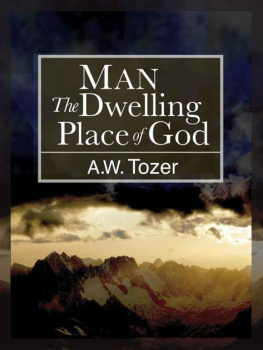

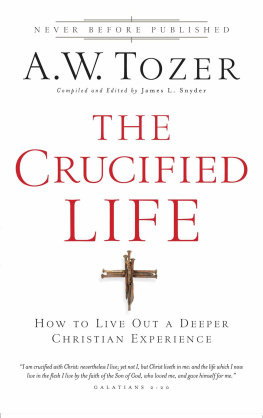
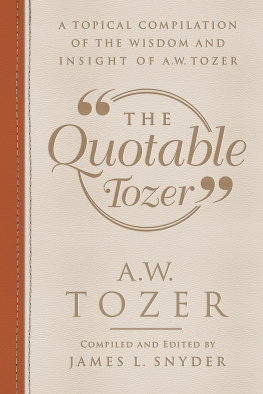









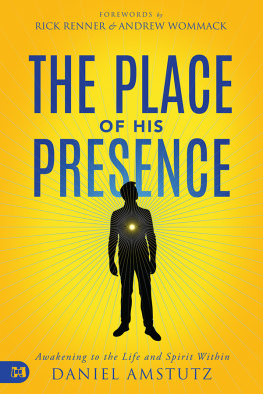



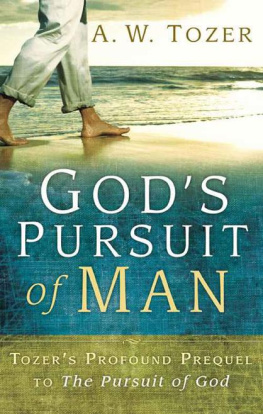
 The Fig Classic Series. Click to view more titles in our catalog or visit us at fig-books.com MAN The Dwelling
The Fig Classic Series. Click to view more titles in our catalog or visit us at fig-books.com MAN The Dwelling